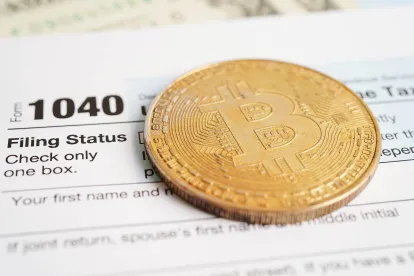On July 13, 2023, a New York federal judge issued a landmark split decision in the SEC v. Ripple Labs case that takes a step toward answering one of the biggest questions in the digital asset space: whether cryptocurrency tokens—in this case XRP— are inherently securities under the 1933 Securities Act (the “1933 Act”). The Court concluded that XRP is not, in and of itself, a security. This significant statement did not, however, end the Court’s analysis. Applying the Howey test, the Court determined that whether Ripple engaged in an unlawful offer and sale of securities by issuing the XRP token depended on how Ripple sold XRP. The Court concluded that the tokens Ripple sold directly to institutional investors were securities as defined by Section 5 of the 1933 Act, but the XRP tokens sold on the open market through digital asset exchanges did not. The key difference all came down to what these different purchasers understood they were investing in: Ripple the business or XRP the token.
Before analyzing sales of XRP to institutional investors or individuals on crypto exchanges, the Court took up Ripple’s argument that the XRP token does not have the “character of commerce” of a security and operates more like an ordinary asset or commodity like gold, silver or sugar. This argument, as the Court saw it, “misses the point because ordinary assets—like gold, silver, and sugar—may be sold as investment contracts, depending on the circumstances of those sales.” In other words, the Court rejected the notion that if the underlying asset was not a security, then the sale of that asset does not constitute a contract, transaction, or scheme under the Securities Act.
Moving to the question of whether the XRP tokens were “securities,” the Court distinguished between sales made to institutional investors and those made via digital currency exchanges. For sales to institutional investors, the Court had little trouble finding that the sales satisfied the first two prongs of Howey because: (1) institutional investors paid money in exchange for XRP; and (2) there was a “common enterprise” because Ripple pooled the assets realized from institutional XRP sales and the fortunes of the institutional buyers were tied to the success of the enterprise as well as to the success of each other.
The Court also found that sales to institutional investors satisfied the third prong of Howey because the economic reality surrounding the sale of XRP to institutional investors led those investors to have an expectation of profits based on the efforts of others (Ripple). As the Court saw it, institutional investors understood that Ripple would use the capital it received from XRP sales to improve and develop the business, thereby increasing the value of the XRP token. The Court relied on a long list of Ripple marketing materials, public reports, and statements by Ripple’s senior leaders about the investment potential of XRP and its relationship to efforts of Ripple (the company). Sales to institutional investors were also executed through contracts, which often included provisions restricting the sale of XRP. Simply put, the Court didn’t buy that institutional investors of XRP thought they were purchasing a currency or commodity – “they understood the sale of XRP to be an investment in Ripple’s efforts.”
Applying the same three-prong test to XRP sales to individuals via digital currency exchanges (the “Programmatic Sales”), the Court found that those sales did not constitute investment contracts. Purchasers of XRP (the token) on crypto exchanges did so through blind bid/ask transactions, so those buyers had no idea they were purchasing XRP from Ripple. The Court viewed XRP purchased on an exchange as significantly different from institutional investors purchasing XRP from Ripple directly pursuant to a contract. Purchasers of XRP on exchanges, even if the purchase was actually from Ripple, stood in the same shoes as a secondary market purchaser who had no idea who was on the other side of the transaction. These individuals could not have expected that their purchases of XRP were investments in Ripple; they did not know they were purchasing the tokens from Ripple.
The Court also rejected the SEC’s argument that sales of XRP via cryptocurrency exchanges constituted an investment contract because Ripple explicitly targeted individuals looking to make a speculative investment. But the Court emphasized that the relevant inquiry was not whether there was a speculative motive driving the purchase, but whether the motive was to profit from the managerial efforts of others. According to the Court, buyers of XRP on crypto exchanges may have expected profit, but it was not based on Ripple’s efforts, as opposed to other facts like general cryptocurrency market trends. Lastly, the Court differentiated individual purchases of XRP on exchanges from institutional purchasers based on the fact that exchange sales were not made pursuant to contracts with resale restrictions or statements of purpose, and institutional investors were generally more sophisticated investors who were aware of Ripple’s marketing campaign and public statements connecting XRP’s price to its own efforts.
In effect, the Court determined that when XRP tokens were sold to institutional investors in over-the-counter trades (accompanied by due diligence and marketing materials promulgated by the seller), those transactions were “investment contracts” subject to the federal securities laws, but anonymous, direct sales on digital currency exchanges without disclosures are not. Even though Ripple sold XRP through both mediums to raise capital to build and improve its payments network, under the Court’s opinion, the disclosures to institutional investors (and not to retail investors) implicate the application of the federal securities laws to the transactions, as the purchasers of XRP on digital currency exchanges “could not have known if their payments of money went to Ripple, or any other seller of XRP.” Regardless of whether the XRP tokens sold were intended to raise capital for Ripple, the Court determined that it was the purchaser’s knowledge, rather than the intent of Ripple, that governed whether XRP was a security in any given transaction.
For the XRP Ripple paid to employees as compensation and to third parties to develop applications for XRP, the Court concluded that those transactions failed get passed Howey’s first prong requiring that there was an investment of money as part of the transaction. After all, these recipients of XRP did not pay money or other consideration to Ripple, Ripple paid them in XRP in exchange for their work.
In a separate part of the decision, the Court explicitly stated it declined to address whether secondary market sales of digital currencies constitute securities because that question was not properly before the Court. Rather, the Court’s focus was only on Ripple’s sales of the token on exchanges, not the resale of those tokens by others (including those originally sold to institutional investors through direct contracts). Given the SEC stated in its summary judgment brief that “secondary market transactions” are “not part of the SEC’s claims here,” the Court was appropriately reluctant to venture beyond the relief sought. Whether secondary sales of digital assets constitute a security remains an open and pressing question.
Lastly, certain other claims will proceed to trial given the Court’s denial of summary judgment. In particular, the SEC’s claims against the individual defendants (Ripple’s CEO and Ripple’s co-founder) will proceed in part on whether each knew about aspects of Ripple’s business that made XRP sales to institutional investors illegal.
The Court’s split decision left both sides claiming victory. On one hand, the SEC stated it was “pleased that the court found that XRP tokens were offered and sold by Ripple as investment contracts in violation of the securities laws in certain circumstances.” On the other hand, Ripple’s CEO (a defendant in the case) tweeted in celebration about the Court’s ruling that XRP tokens were not in itself a security, and Ripple’s Chief Legal Officer tweeted that Coinbase would be relisting XRP on the Coinbase exchange in light of the Court’s order.
Given fact-dependent nature of the Howey analysis, the ultimate impact of the Court’s split decision is unclear. While the Court’s conclusion that XRP is not, by itself, a security will be heralded as a victory by the digital asset industry, it does not necessarily signal total victory for those opposed to the SEC’s views on cryptocurrencies. Indeed, the issue of whether cryptocurrencies —both fungible and non-fungible— are unregistered securities remains a pressing question in many pending SEC enforcement actions, including against Coinbase. The Court’s decision here also likely undercuts the SEC’s position in other pending enforcement actions where the SEC has alleged that secondary sales of digital assets (like XRP) on digital currency exchanges constitute the sale of unregistered securities. While it is too early to know whether the SEC intends to appeal the Court’s ruling here, if it is upheld on appeal, the likely effect of the ruling is to critically narrow the scope of the SEC’s enforcement jurisdiction over cryptocurrency markets.
While the Court’s order might look like a partial victory for Ripple, it’s a potentially huge victory for those in the digital asset space who are currently facing regulatory scrutiny about whether their token, or the tokens offered on an exchange, constitute securities. Should other courts adopt this Court’s framework, it would put the focus on the circumstances of how a particular token is sold as the critical factor in determining whether it’s a security. Assuming this decision is upheld if appealed, under the Court’s rubric, tokens sold to users via crypto exchanges do not seem to violate securities laws, as opposed to initial coin offerings or institutional sales. As the Court noted, “XRP, as a digital token, is not in and of itself a ‘contract, transaction, or scheme’ that embodies the Howey requirements of an investment contract.”
However, to the extent cryptocurrency companies wish to raise capital via sales to institutional investors, the Court’s decision here would bar such sales absent the cryptocurrency companies’ decision to either (a) register those securities prior to sale or (b) obtain a registration exemption for sales to “accredited investors” under the securities laws (such sales will still be subject to the antifraud provisions of the federal securities laws). In effect, the Court’s decision creates an tenuous two-tiered system whereby sales to highly sophisticated institutional investors (investment funds, hedge funds, and others) must be registered prior to sale, but those sales to retail investors through digital currency exchanges do not. This creates a differentiated system whereby the antifraud provisions would apply only to sales made to institutional investors (and not retail investors). At bottom, the Court’s opinion creates a situation whereby greater protections are afforded institutional purchasers, which the Court recognizes are “sophisticated entities,” rather than retail investors purchasing on digital currency exchanges, who are “generally less sophisticated as [..] investor[s].” Such an awkward duality has significant implications for cryptocurrency industry, and this regulatory uncertainty will likely be up to Congress to resolve, not the courts.






 />i
/>i

